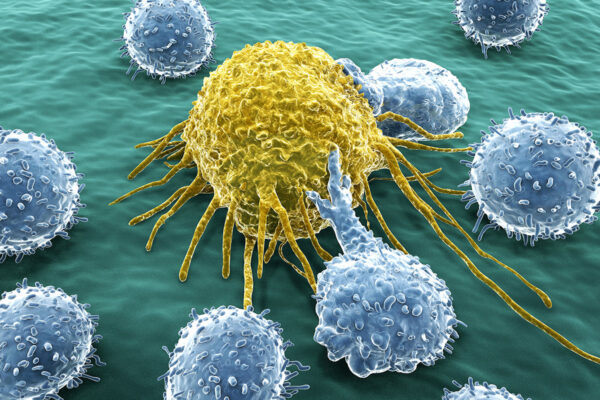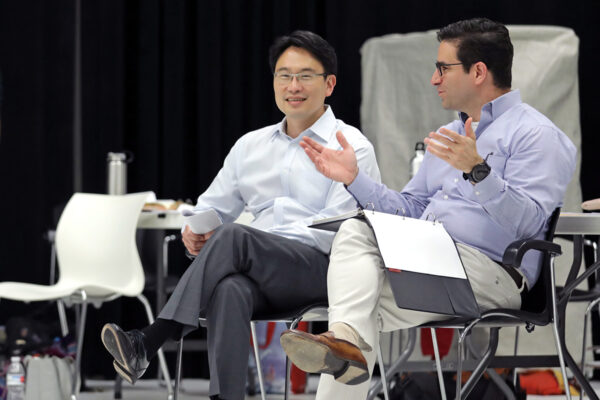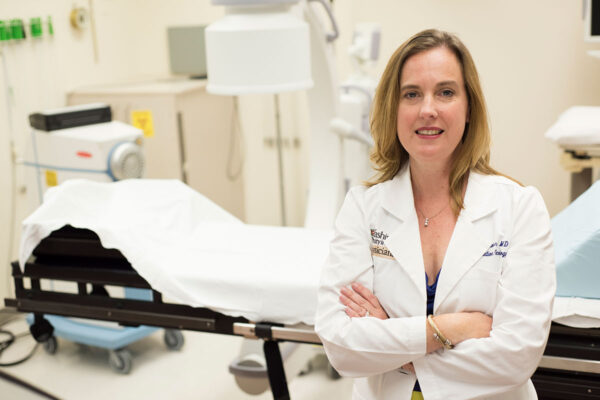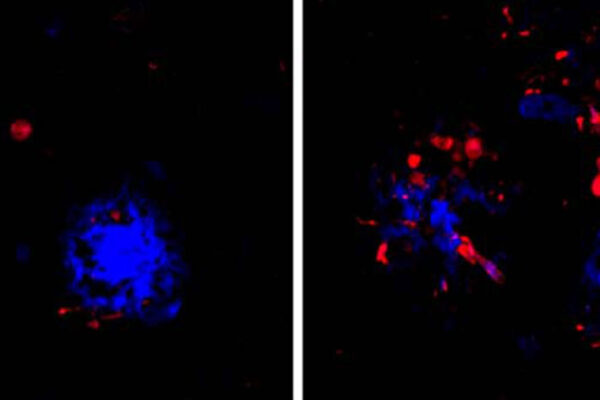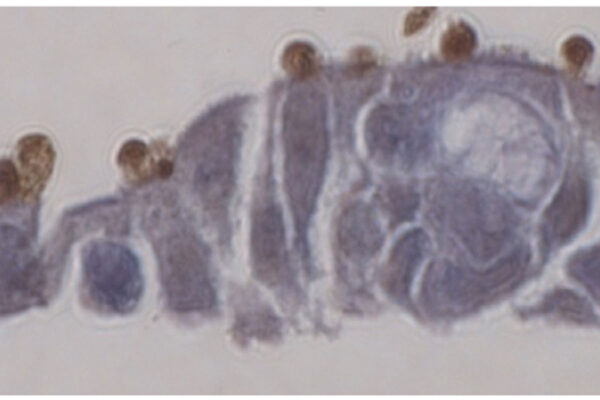Sauerwein article recognized by Association of American Medical Colleges
Kristina Sauerwein, a senior medical sciences writer in Medical Public Affairs at Washington University School of Medicine in St. Louis, has received a silver Robert G. Fenley Writing Award for general staff writing from the Association of American Medical Colleges (AAMC).
Fighting pancreatic cancer with immunotherapy
Researchers at the School of Medicine in St. Louis and Rush University in Chicago have found a compound that promotes a vigorous immune assault on pancreatic cancer. The findings, in mice, suggest a way to improve immunotherapy for the deadly disease in patients.
Theater production explores wonders of human brain
Two nationally renowned neurosurgeons at the School of Medicine will present BrainWorks, a live theatrical performance that explores the wonders of the human brain by dramatizing real-life neurological cases. The performance, comprised of four one-act plays, will debut July 19-21.
Blanchard appointed vice chair for education
The Department of Medicine at Washington University School of Medicine in St. Louis has named Melvin Blanchard, MD, to the newly created position of vice chair for education.
HIVE team seeks to help with patient compliance at home
A team involving a doctor and five undergraduate students – three from the McKelvey School of Engineering – recently took first place in the 2019 Discovery Competition.
Obituary: George Broze, professor of medicine, 72
George J. Broze Jr., MD, a well-known leader in the field of hematology and a professor of medicine at Washington University School of Medicine in St. Louis, died of a heart attack June 19, 2019, at his home in St. Louis County. He was 72.
Schwarz named vice chair for research in radiation oncology
Julie K. Schwarz, MD, PhD, has been appointed vice chair for research in the Department of Radiation Oncology at Washington University School of Medicine in St. Louis.
Understanding how tics are suppressed may help some at risk for tic disorders
Studying children shortly after they began experiencing tics, researchers at the School of Medicine discovered that although tics don’t go away, most children are able to suppress and control them. Understanding how they do that may provide insight to help others at risk for significant tic disorders.
Alzheimer’s missing link ID’d, answering what tips brain’s decline
Researchers at the School of Medicine have found that immune cells that typically protect neurons from damage may be the link between such early and late brain changes in Alzheimer’s disease. Breaking that link could lead to new approaches to delay or prevent the disease.
Treatment for common cause of diarrhea more promising
School of Medicine researchers have figured out how to grow the intestinal parasite Cryptosporidium in the lab, an achievement that will speed efforts to treat or prevent diarrhea caused by the parasite.
View More Stories

